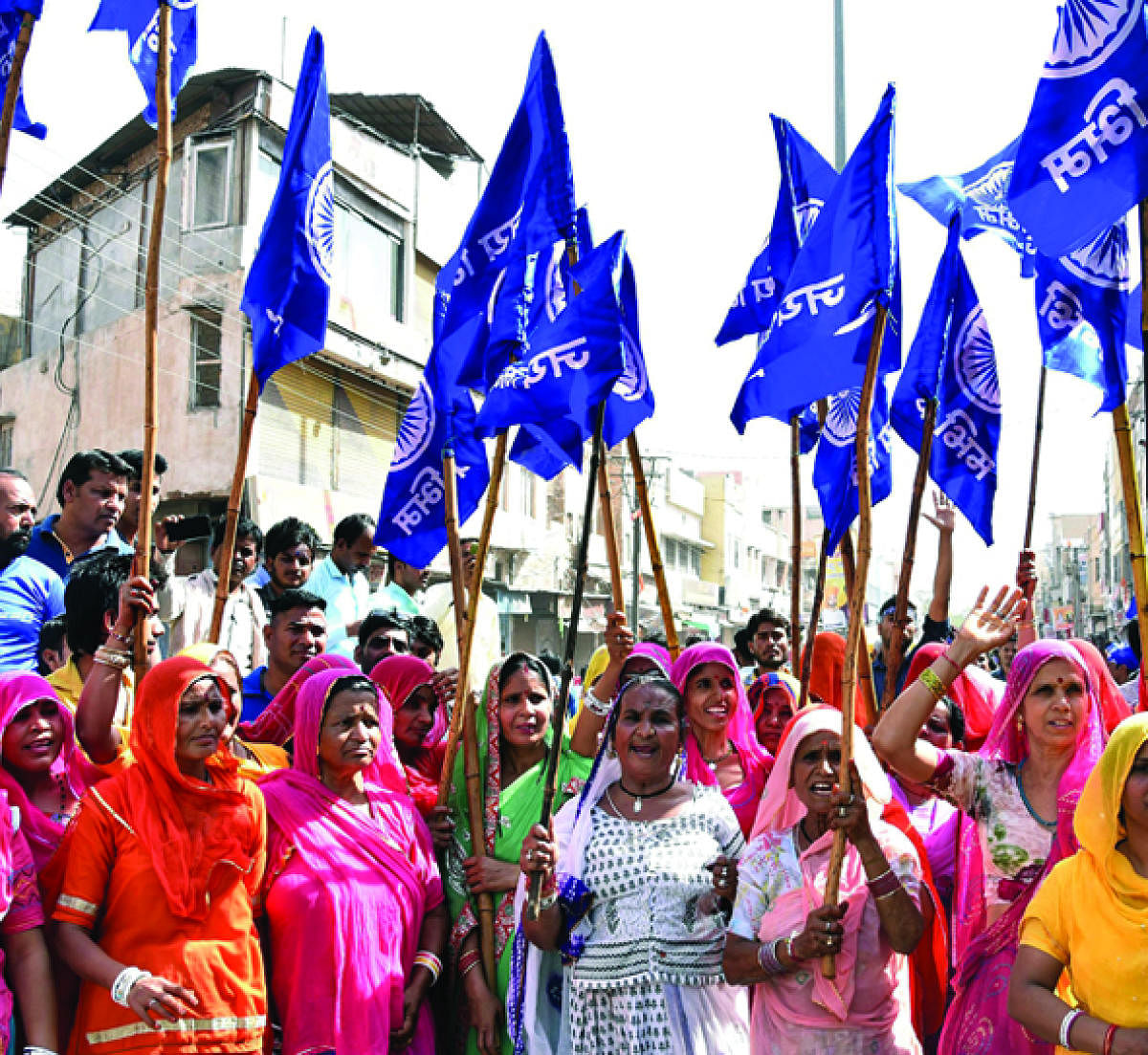
The recent judgement of the Supreme Court in the Subhash Kashinath Mahajan vs State of Maharashtra case, which seemingly diluted the provisions of the SC and ST Prevention of Atrocities (PoA) Act of 1989 by stating that complaints under the Act can be initiated only after obtaining the sanction of the appointing authority in cases involving state officials and Senior Superintendents of Police(SSPs) in the case of individuals, has triggered protests across the country by opposition parties and Dalits. Some 10 people lost their lives, mostly in the Hindi belt states of Uttar Pradesh, Madhya Pradesh and Rajasthan, during the violent protests by Dalits. There was also widespread damage of public and private property. In Rajasthan, counter-protests by non-Dalits led to the torching of the house of a Dalit MLA from BJP and an ex-MLA from Congress. After much procrastination and damage, the Centre moved a review petition in the Supreme Court to stay this judgement in view of its wider ramifications, including political costs. The court, of course, refused to stay its order.
At no time since Independence has the Dalit community and minorities felt under siege than since the assumption of office by the Narendra Modi-led BJP government in 2014. It has resulted in exerting extreme pressure on India's fault lines of caste, religion, ethnicity or language. Be it University of Hyderabad research scholar Rohit Vemula's suicide or the flogging of Dalits in Una in Gujarat or attacks on Dalits and Dalit icons by cow vigilantes in BJP-ruled states or attacking the Constitution framed by Babasaheb Ambedkar by Union minister Ananth Kumar Hegde or vandalisation of Ambedkar statues, the Modi government through its inaction and silence seems to be tacitly encouraging these attacks and atrocities on Dalits and minorities. In fact, in the Rohit Vemula case, the BJP government went on an overdrive to prove that he was not a Dalit. The vice chancellors of the University of Hyderabad and Jawaharlal Nehru University rather than holding impartial inquiries into events involving Dalits and minorities seemed keener to please their masters in Delhi and Nagpur rather than engaging with faculty and students.
The protests by Dalits partly also seems to reflect the bursting of pent-up furies of the Dalit community against the Modi-led Centre and state BJP governments. The Dalits feel they have been taken for a ride by Modi and the BJP which lured them with 'Acche Din' and 'Sab Ka Saath Sab ka Vikas' slogans in 2014. Even the Jatav community in Uttar Pradesh, which traditionally voted for Mayawati and BSP, deserted her and voted for BJP in a big way in 2014.
The BJP president Amit Shah has countered opposition charges of BJP's anti-Dalit bias by pointing to the several measures taken for the benefit of Dalits and moves to honour Ambedkar, such as purchasing the house where Ambedkar lived in London and converting it into a memorial. While attacking the previous Congress governments for not honouring Ambedkar, Shah made the false claim that it was a BJP government that awarded the Bharat Ratna to Ambedkar and unveiled his portrait in Parliament. Truth is, it was the VP Singh government that did so in 1990.
A recent article noted that if conviction rates under the Act are low, it has as much to do with the misuse of the provision as with the way investigations are conducted and cases are prosecuted in the courts. Citing a study in the Economic and Political Weekly, the article notes that nearly 50% of the cases filed under the Act do not go to court and are closed by the police. It also alluded to a caste bias amongst investigating officers. The amicus curiae cited the data from the latest report of the National Crime Research Bureau (NCRB) suggesting that 75% of the cases filed under the Act resulted in acquittal or withdrawal of charges. The NCRB annual report for 2017 reveals that crimes registered under PoA was about 40,801 in 2016.
In BJP-ruled states
It is the BJP-ruled states, such as Uttar Pradesh (10,426 cases), which reported the highest number of cases registered under the Atrocities Act (accounting for 25% of all cases in India) followed by Bihar with 14% (5,701 cases) and Rajasthan with 12.6% (5,134 cases) during 2016. Assault on women with a view to outrage their modesty constituted the major share of crimes against SC women, followed by rape cases. Cases of atrocities against Scheduled Tribes were 6,568 in 2016. BJP-ruled Madhya Pradesh accounted for 27.7% of these cases, followed by Rajasthan (18.2%), and Odisha (10.4%). Rape accounted for the major share of crimes against ST women (14%), followed by assault on women to outrage their modesty (12.7%).
There is no doubt that there are lacunae in the SC and ST Atrocities Act. Like anti-dowry laws, there is the risk of provisions being used to target innocent public officials and individuals. But law-making is the duty of Parliament and not of the Supreme Court.
There is also no guarantee that the court's guidelines will not be misused such as SSPs belonging to the upper castes not registering cases or sabotaging them by filing defective FIRs, or appointing authorities delaying or withholding sanction for prosecution of public officials.
The Ministry of Home Affairs, in its annual report for 2017, acknowledges the need to strengthen the Atrocities Act and make it more effective. Along with these, necessary provision should also be made to prevent the misuse of PoA and penalise and award exemplary costs to those who misuse the Act. But do our politicians and representatives, who shed crocodile tears for Dalits, minorities, farmers, unemployed youth and women during elections, have the courage to act?
(The author is an economist)
Deccan Herald is on WhatsApp Channels| Join now for Breaking News & Editor's Picks